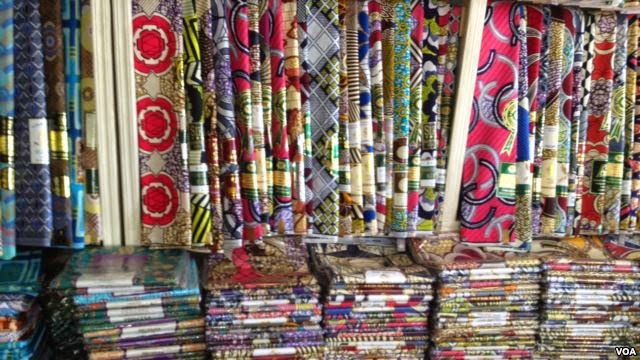The Senate, yesterday, directed the Executive to ban importation of foreign textile materials.
The upper legislative chamber said it was worried that all textile manufacturing industries in the country were comatose and importation of foreign fabrics on the rise.
It has, therefore, urged the Executive to revamp Kaduna, Kano, Aba, United Nigeria textiles, among others to promote local textile production. The decision followed a motion by Barkiya Abdullahi Kabir on the urgent need to revamp the nation’s comatose textile industry.
Leading the debate, Kabir argued that between 1960 and 1970, textile industry played a significant role in the manufacturing sector of the country’s economy with well over 140 functional companies.
According to him, the industries recorded an annual growth of 67 per cent as at 1991 and had also created employment above 25 per cent.
He said the discovery of oil affected the textile industry as a result of decline in cotton production which was major source of raw material.
“Revamping the textile industry will provide huge employment opportunities and reduce some of the social vices we have in the country today,” he stated.
Kabir added that if the textile industries were resuscitated, it would boost the nation’s economy and raise the revenue bar.
However, Senate Minority Leader, Enyinnaya Abaribe, argued that the death of textile industries had nothing to do with closure of borders.
He said the main challenge that brought textile decline was lack of adequate power supply which he said happened since 1982.
“I support the motion but I stand to disagree that border closure can encourage textile production, it is not border closure but the issue of power.
“Around 1982, textiles industries collapsed because there was lack of power supply to run production of textile industries.
“Unless power is improved and I want the federal government to do the fundamentals, the APC national chairman, a former textile worker should encourage the federal government to revamp the industries,” Abaribe said.
Consequently, the Senate urged the Executive to encourage local textile manaufacting companies by providing them with soft loans and easy access to credit facilities through the Bank of Industry (BOI).
Also, the Senate has directed that the Federal Government to urgently provide necessary infrastructural facilities to boost textile manufacturing in the country.
Meanwhile, the National Assembly is working towards the passage of the 2020 Appropriation bill on Novemeber 28, President of the Senate, Ahmad Lawan said, yesterday.
To achieve the target date, Lawan, during plenary mandated the Senate Committee on Appropriations, to submit its report on the 2020 Budget proposal on November 26.
He said the committee’s compliance with the presentation of its report on November 26 would facilitate the passage of the 2020 Budget on November 28, before the National Assembly would proceed on Christmas break.
He said: “On the Budget 2020 we are working on, the ball is now in the court of Senate Committee on Appropriations, the last committee standing.
“All the committees have done their work so well within the defined parameters and we, therefore, expect the Appropriations Committee to produce the report and lay it here by November 26, the next two weeks.
“I believe that the same thing will be done in our sister chamber, the House of Representatives, so that we are able to pass the Appropriation Bill 2020 on the Nov. 28, by the Grace of God.”
Minister of Finance, Budget and National Planning, Mrs Zainab Ahmed, has lauded the National Assembly for its speedy consideration of the Finance Bill, 2020 submitted by President Muhammadu Buhari.
NAN










